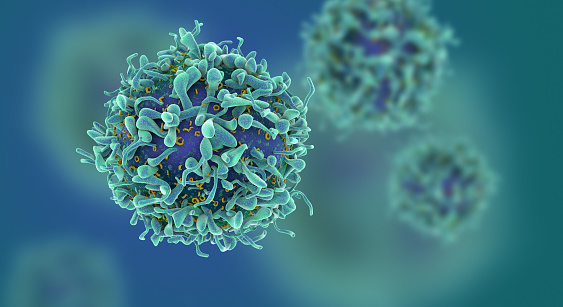
Fresh off the heels of the Food and Drug Administration approval of the third CAR-T cell therapy, a company that markets one of the approved CAR-Ts has said a clinical trial of its product was successful.
Basel, Switzerland-based Novartis said Tuesday that the Phase II ELARA study of Kymriah (tisagenlecleucel) in patients with relapsed or refractory follicular lymphoma had met its primary endpoint of complete response rate. Although the http://medcitynews.com/tag/novartiscompany did not disclose the actual data, it said it plans to submit them to the FDA and European Medicines Agency next year, with plans to present them at an upcoming medical meeting.
Kymriah was the first CAR-T therapy to reach the market, when the FDA approved it in 2017 for acute lymphoblastic leukemia in children and young adults. Kite Pharma – now owned by Gilead Sciences – won FDA approval for its CAR-T, Yescarta (axicabtagene ciloleucel) for diffuse large B-cell lymphoma soon thereafter. Kymriah also won approval for DLBCL, in May 2018. And last month, the FDA approved the third CAR-T, Gilead’s Tecartus (brexucabtagene autoleucel), for mantle cell lymphoma. All three CAR-Ts target CD19, an antigen widely expressed on the surfaces of ALL and B-NHL cells.
Like MCL, follicular lymphoma is an indolent – or slow-growing – form of B-cell non-Hodgkin’s lymphoma and accounts for 22% of lymphoma cases. Unlike DLBCL, its fast-growing and much more common cousin, it is considered incurable and repeatedly relapses and remits, with patients receiving a median five lines of treatment and as many as 12.
“These results further support our efforts to reimagine medicine in this incurable malignancy and reach this underserved patient population, who are historically burdened with several years of various treatments,” said John Tsai, Novartis’ chief medical officer, in a statement.
Numerous other CAR-T cell therapies are also in development, with some likely to win regulatory approval in the near future. These include Bristol-Myers Squibb’s lisocabtagene maraleucel, a CD19-targeting CAR-T it is developing for non-Hodgkin’s lymphoma, as well as idecabtagene vicleucel, which BMS is developing with bluebird bio and is a CAR-T that targets the BCMA antigen in patients with multiple myeloma. BMS and bluebird refiled their approval application for the CAR-T last week.

A Deep-dive Into Specialty Pharma
A specialty drug is a class of prescription medications used to treat complex, chronic or rare medical conditions. Although this classification was originally intended to define the treatment of rare, also termed “orphan” diseases, affecting fewer than 200,000 people in the US, more recently, specialty drugs have emerged as the cornerstone of treatment for chronic and complex diseases such as cancer, autoimmune conditions, diabetes, hepatitis C, and HIV/AIDS.
Photo: CGToolbox, Getty Images












